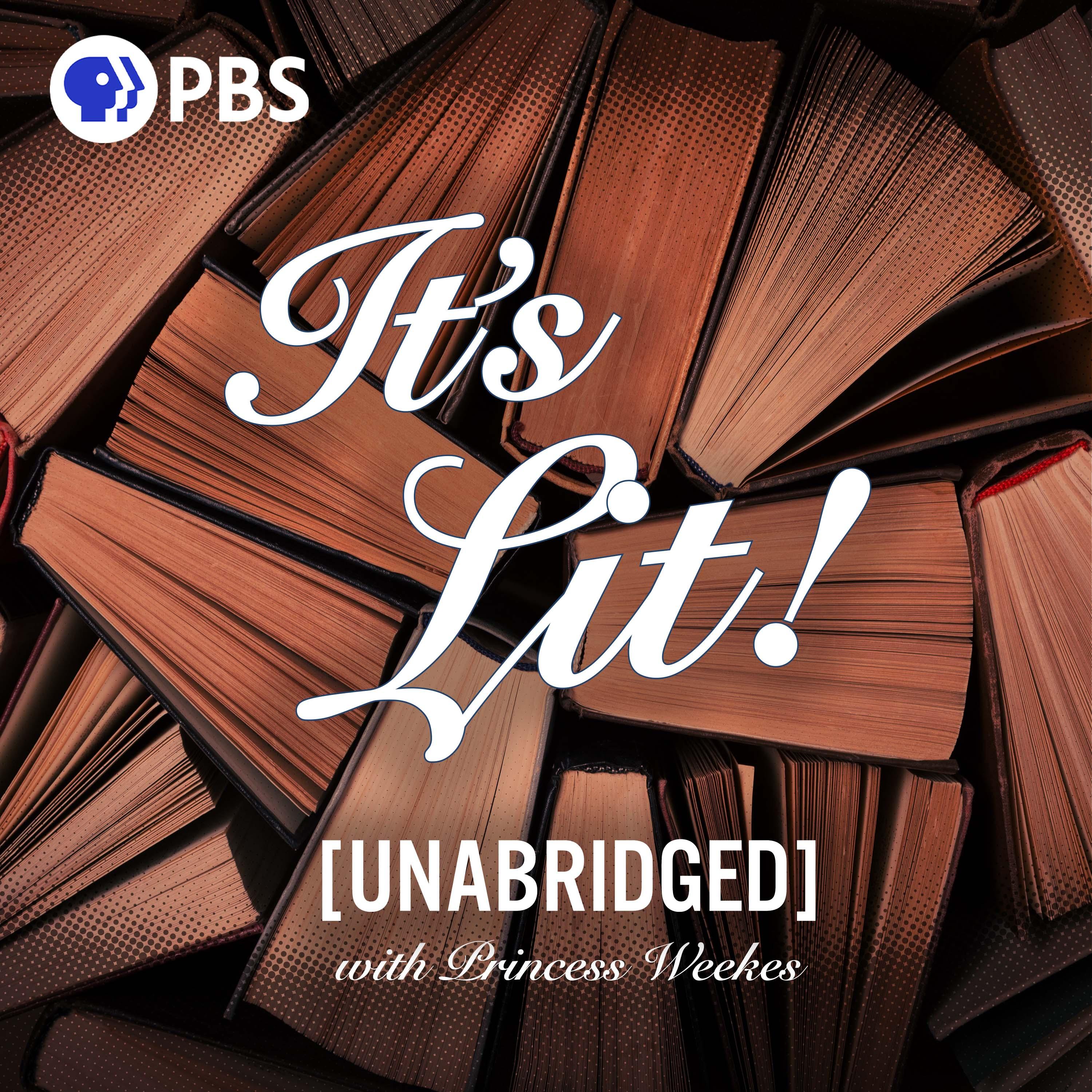![Logo for It’s Lit! [Unabridged]](/_next/image?url=https%3A%2F%2Ff.prxu.org%2F687%2Fimages%2F07f41582-caa0-4117-9774-d15f2bc0a944%2FChannel_Cover_It_s_Lit_Unabridged_.jpg&w=3840&q=75)
It’s Lit! [Unabridged]
PBSWelcome to It’s Lit! [Unabridged], the sister podcast to the popular YouTube series It’s Lit!. Hosted by Princess Weekes, this 10-episode podcast spinoff will feature lively conversations with noted authors about their work, discussions about influential novels, and issues related to books and literature. It’s Lit! [Unabridged] delivers the conversations you want to have during your book club, but without having to actually sign up for one.
Credits:
Host, Writer + Producer - Princess Weekes
Executive Producer - Amanda Fox
Coordinating Producers - Stephanie Noone, Thomas Fernandes
Sound Edit + Mix - Crutch Phrase Studio
Fact Checker - Yvonne McGreevy
Music provided by APM
For PBS:
Executive in Charge: Maribel Lopez
Director of Programming: Gabrielle Ewing
The It’s Lit Podcast has been made possible in part by the National Endowment for the Humanities: Democracy demands wisdom.
It’s Lit! [Unabridged] is produced by Spotzen for PBS Digital Studios.
© 2022 PBS. All rights reserved.
Welcome to It’s Lit! [Unabridged], the sister podcast to the popular YouTube series It’s Lit!. Hosted by Princess Weekes, this 10-episode podcast spinoff will feature lively conversations with noted authors about their work, discussions about influential novels, and issues related to books and literature. It’s Lit! [Unabridged] delivers the conversations you want to have during your book club, but without having to actually sign up for one.
Credits:
Host, Writer + Producer - Princess Weekes
Executive Producer - Amanda Fox
Coordinating Producers - Stephanie Noone, Thomas Fernandes
Sound Edit + Mix - Crutch Phrase Studio
Fact Checker - Yvonne McGreevy
Music provided by APM
For PBS:
Executive in Charge: Maribel Lopez
Director of Programming: Gabrielle Ewing
The It’s Lit Podcast has been made possible in part by the National Endowment for the Humanities: Democracy demands wisdom.
It’s Lit! [Unabridged] is produced by Spotzen for PBS Digital Studios.
© 2022 PBS. All rights reserved.










![Thumbnail for "Welcome to It's Lit! [Unabridged]". Thumbnail for "Welcome to It's Lit! [Unabridged]".](/_next/image?url=https%3A%2F%2Ff.prxu.org%2F687%2Fcf3f34e3-54bd-4a43-b3a5-819c5bf49380%2Fimages%2F8f056f84-10d6-46e5-9595-27cf93f23435%2FShow_Cover_It_s_Lit_Unabridged_.jpg&w=3840&q=75)
Hope and Rage in Black Literature with Mikki Kendall

Throughout history, Black voices have been outspoken about the institutional oppression they have faced. From the slave narratives like those of Mary Prince, Frederick Douglass, and Harriet Jacobs white audiences were given a glimpse into the emotional, physical, and psychological horrors of enslavement. Authors like Frances Harper tackled the rebuilding of the Black family in books like Iola Leroy. In the 1920s, the Harlem Renaissance created an entire generation of Black American and Caribbean American authors who gave voice to the new burdens that racist society held for freed Blacks. We also began to see Black female authors speak more openly about the double oppression of gender and race. Ida B Wells-Barnett, was one of the most influential Black journalists of her time, and still today, with her reporting on lynching in the American south. Literature is filled with Black rage, Black pain, but also Black hope for a future in which their descendants will not have to march for the same rights we fight for in the present. Today we are going to talk about verbalizing Black rage, especially that of Black women and Black queer folk, and what we gain today by looking closely at the literary history of the Black revolution.
Unabridged is made possible in part by the National Endowment for the Humanities. Democracy demands wisdom.